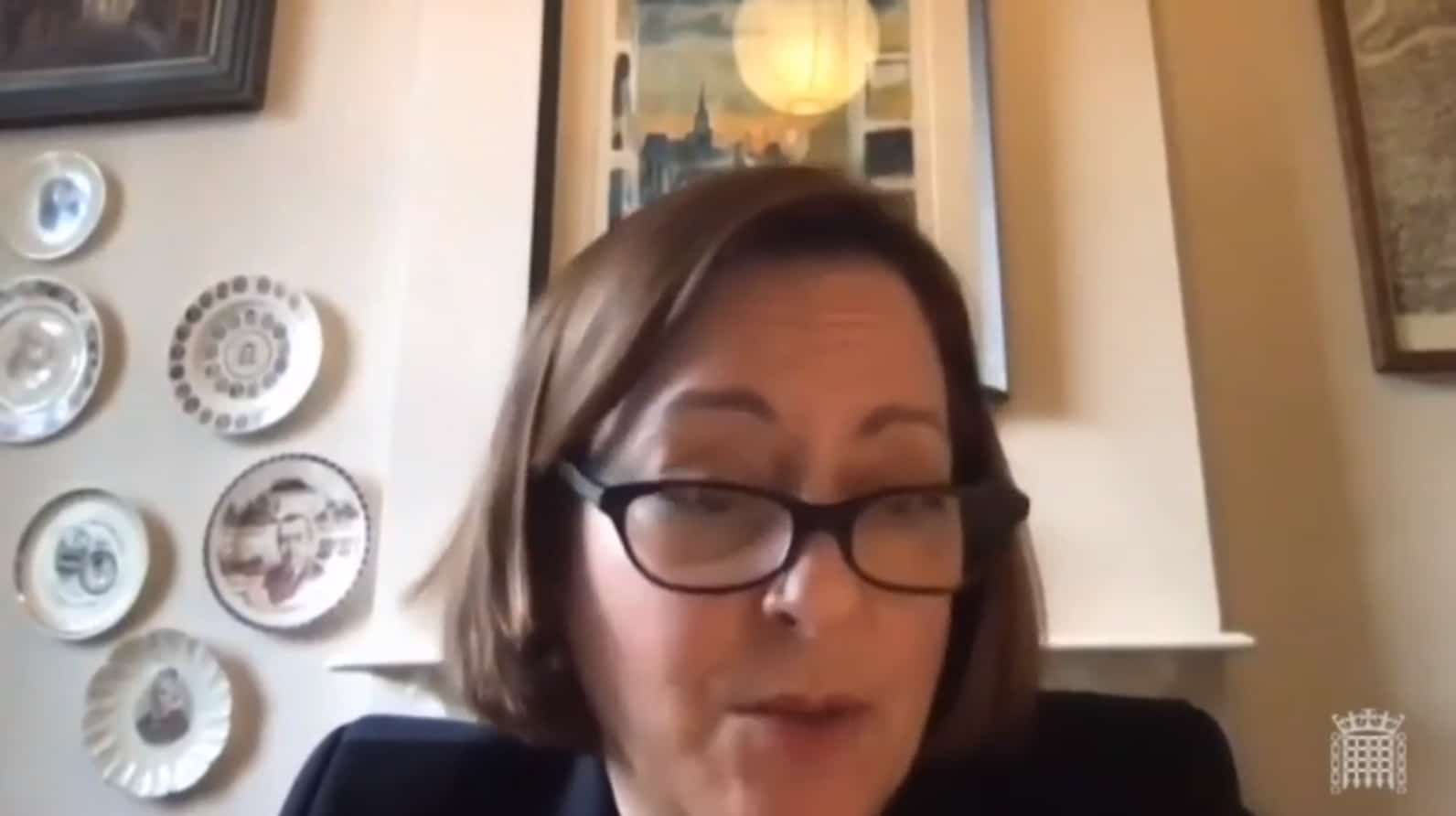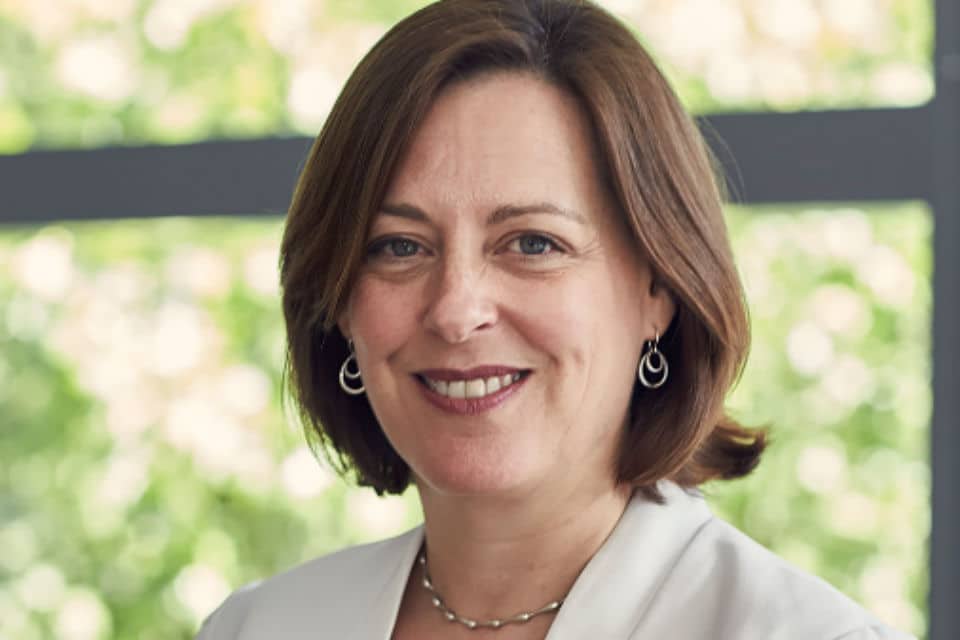Melanie Dawes, the head of UK communications regulator Ofcom (Civil Service/Open Government Licence)
The head of UK communications regulator Ofcom has said it is “extremely inappropriate” for broadcasters to seek to “balance” appearances by transgender people with activists from anti-trans pressure groups.
Ofcom chief executive Melanie Dawes made the comments before parliament’s Digital, Culture, Media and Sport Committee on Tuesday (15 December), when asked about the BBC’s current editorial practice of requiring critical voices in all discussions relating to transgender people.
PinkNews is aware of at least one case in which a BBC programme invited an all-transgender panel to discuss their experiences and varied views on gender recognition – before an intervention by the broadcaster’s editorial policy unit required the inclusion of a cisgender woman with ‘gender critical’ views.
In another instance, an online report on healthcare waiting times for transgender people was altered to include unrelated trans-hostile commentary from the pressure group LGB Alliance.
Scottish National Party MP John Nicolson, himself a seasoned former BBC news broadcaster, said: “I noticed that the BBC seems to be under the impression that it’s got to ‘balance’ all its reports about trans issues so by calling in transphobic groups like the so-called LGB Alliance to give a counter-argument.
“I think this is absurd because you would never do a report on racism, for example, and call in a racist organisation to say that they don’t think that Black people have a right to equality.
“What can the BBC do to address this, and do you think it’s buckling under a very well-funded concerted campaign to attack trans people, which seems to have been given undue prominence recently?”
Ofcom boss says approach to balance on trans issues has been ‘extremely inappropriate’
Dawes responded: “I think it’s a very good point and actually a very good example of something that that we’ve been talking to Stonewall about, actually… about how can the broadcasters, when they do feel they need to bring balance into a debate, do it in an appropriate way, rather than in the way that you just described, which can be extremely inappropriate.
“I don’t think that there is a lack of will here by the BBC or others, but I do think that we can do more to give people the information they need, to be able to make judgments in some areas which can be quite contentious… to make sure that they’re doing the right thing.”
BBC News seems to be under the impression that it needs to “balance” all its reports on trans issues with comments from transphobic groups. “Extremely inappropriate,” says the @Ofcom boss on @CommonsDCMS.
Please note @BBCNews
WATCH FULL EXCHANGE HERE: https://t.co/9Qze6JlECl pic.twitter.com/APy3BRo4KK
— JOHN NICOLSON M.P. (@MrJohnNicolson) December 15, 2020
Nicolson reflected: “I remember making a documentary for the BBC about all the areas in which gay people were discriminated by law in the 1990s.
“I remember coming back and my commissioning editor said that he enjoyed the film, but he wanted to know why I didn’t have more anti-gay voices in the film. Can you imagine anybody saying that now?
“They wouldn’t, of course, and yet the way that the BBC is behaving with trans people at the moment, shows that that mindset is still in existence, 25-30 years on.
“Many of the arguments that are used to attack trans people now are the same arguments that were used to take gay people in the 1990s.”
Dawes responded: “I can only agree with you. I’m just so glad that things have moved on over these last decades, but there is still more we need to do.
“I do agree with you. What we’re going to try to do is to engage with Stonewall, who have raised this actively with us…and make sure that we give the right information to our broadcasters, so that they can steer their way through without causing offence and without bringing inappropriate voices to the table on questions like this.”

I’d like to see a transgender newsreader, says head of media regulator
Asked if she could imagine the BBC hiring a transgender newsreader, Dawes said: “It’s something that I can imagine, actually. I’d like to think it’s something that we will see in the future.”
Nicolson responded: “I think maybe only in a Hollywood drama in the very near future. I think the day when we see a trans person present the news is very far distant.
“Like you, I think it would be a wonderful thing, but I don’t think the BBC would be brave enough to do it, to be blunt.”
Asked if Ofcom monitored representation of trans people in the industry in the same way as it does for other minority groups, she said: “It’s one of the areas where you do get into quite small numbers quite quickly, so it can be quite challenging to collect the data, but nonetheless it is very important, so we’re going to be following up on on a number of these points with the broadcasters over the coming year.”
Nicolson has previously challenged the BBC’s new director-general Tim Davie on the corporation’s approach to trans issues.
